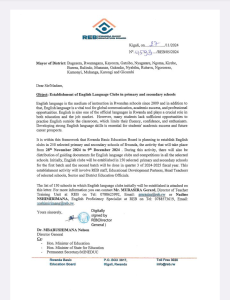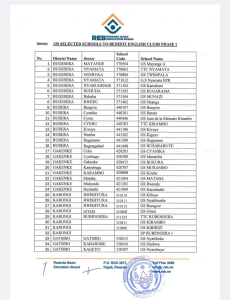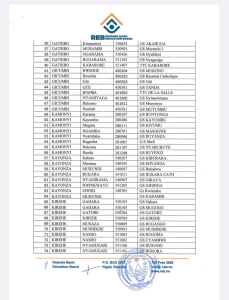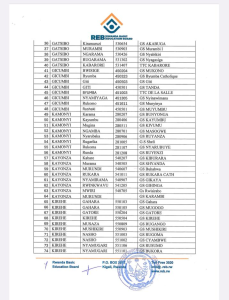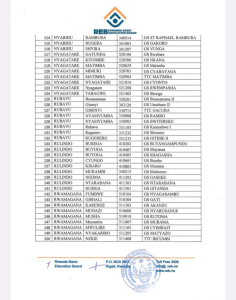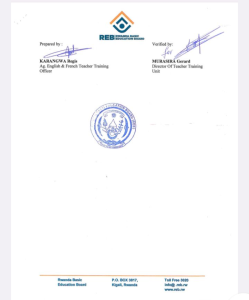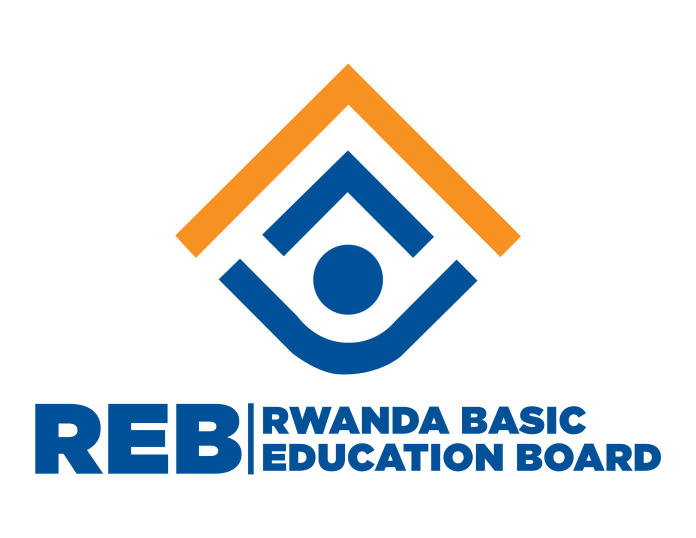The Rwanda Education Board (REB) has announced the establishment of English Language Clubs in 150 selected primary and secondary schools across the country. This initiative aims to enhance English language proficiency among students, aligning with Rwanda’s national educational goals and its commitment to improving language skills for global competitiveness.
English Language Clubs will provide students with an interactive platform to practice their reading, writing, speaking, and listening skills outside the traditional classroom setting. These clubs will also promote peer learning, allowing students to support each other in their language development journey.
According to REB, the selected schools represent a diverse mix of urban and rural institutions, ensuring that the program reaches a broad spectrum of learners. Teachers will receive training to effectively guide these clubs, using engaging activities such as debates, storytelling sessions, and role-playing exercises.
The establishment of English Language Clubs supports Rwanda’s broader educational strategy to strengthen English language learning. As English is an official language in Rwanda and a key medium of instruction, fostering early language proficiency is essential. This move is expected to boost students’ confidence and performance, not only in English but also across other subjects.
Parents and educators have welcomed the initiative, seeing it as a valuable tool for nurturing well-rounded, globally aware students. The English Language Clubs will help bridge the language gap, providing equal opportunities for students from different backgrounds to thrive academically and professionally.
REB’s commitment to promoting English language skills through this program highlights its dedication to quality education. The success of these clubs could pave the way for expanding similar initiatives to more schools nationwide, contributing to Rwanda’s vision of becoming a knowledge-based economy.
